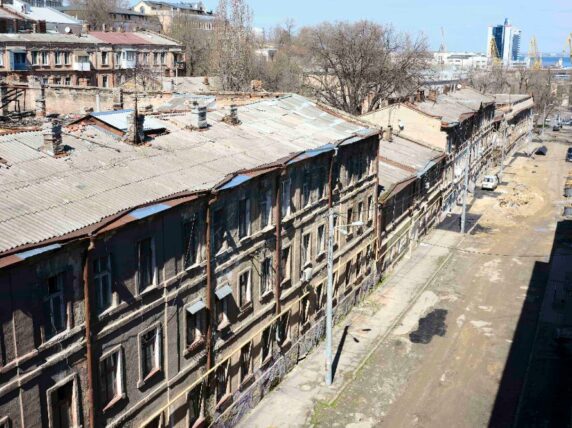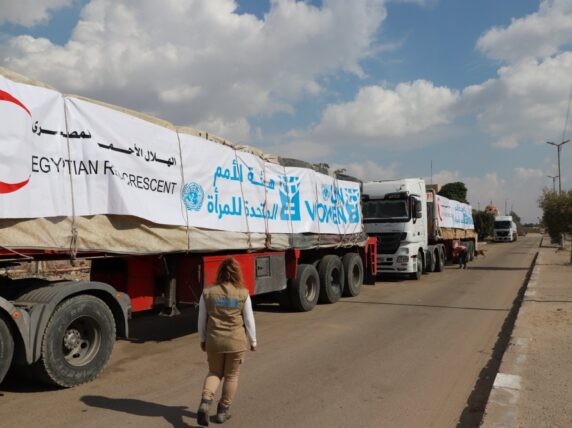The international development sector needs to think twice when talking about ‘in-country refugee costs’ and ODA
There is growing criticism and outrage about the divisive and harmful language that the UK government uses to talk about people seeking sanctuary, and the actions that this language mirrors.
Actions such as the far-right protests earlier this year outside places that people seeking sanctuary temporarily call home. Or the recently unveiled ‘Illegal Immigration Bill’, praised by Europe’s far-right whilst described by the UN refugee agency as ‘profoundly concerning’.
Between these two grim milestones, the International Development Committee published its report ‘Aid Spending in the UK’. The report confirms that the Government has chosen to use the Official Development Assistance (ODA) budget to cover its moral and legal responsibilities to support people seeking sanctuary in their first year in the UK. This is further squeezing the already shrunken ODA budget and many of us would agree that the money should come from a different budget. Yet if we don’t think twice about how we talk about this hot topic, we may inadvertently be contributing to divisive narratives and adding fuel to metaphorical (and literal) fires that threaten the safety and dignity of people seeking sanctuary. So let’s unpack some narratives and how we use them.
‘In-country refugee costs’
To kick off with a technical point, a person is not deemed a ‘refugee’ until their asylum application has been accepted. There are vast differences between the freedoms that asylum seekers and refugees have, such as the legal right to work. The term ‘in-country refugee costs’ conceals nuances in legislation which have huge implications for people’s lives. Whilst we, in the development sector, may not know the details of asylum legislation and are unlikely to stop using this Government terminology, the least we can do is be conscious of inadvertently homogenising a diverse group of people and their experiences.
But the homogenisation of people seeking sanctuary by the Government and media is not always by accident. People seeking sanctuary have long been stripped of their individuality and humanity, referred to with words such as ‘influxes’, ‘arrivals’ or ‘waves’. Spoken about almost exclusively in the plural, ‘asylum seekers’ are increasingly used as scapegoats for issues in the UK and villainised both politically and socially. The narrative that ‘asylum seekers cost millions to the British taxpayer’ is regularly used by the Government and press as an attempted justification for an increasingly hostile environment. This focus on economic expense, void of wider context, insinuates that the UK can’t afford it and implies that people seeking sanctuary are a financial burden and not ‘worthy’ of financial support. By limiting narratives to economics, the humanity and experiences of people seeking sanctuary are flagrantly ignored.
Subscribe to our newsletter
Our weekly email newsletter, Network News, is an indispensable weekly digest of the latest updates on funding, jobs, resources, news and learning opportunities in the international development sector.
Get Network NewsYet, the international development sector is potentially feeding into these narratives as our focus on ‘in-country refugee costs’ has regularly fixated on just that – the cost. The development sector, the Government and the tabloid press all have an interest in the numbers behind ‘in-country refugee costs’ for different purposes. This shared interest has to be recognised as the data and language we share is not in a bubble. In a country where there was a recent far-right attack on people seeking sanctuary, and efforts to push the cruel Illegal Immigration Bill through Parliament, the risk of regurgitating numbers and harmful rhetoric about ‘the cost of arrivals’ is too high.
The figures also miss the bigger picture. We’re focusing on roughly 0.2% of the Gross National Income of one of the world’s wealthiest countries and failing to even acknowledge the other 99.8%. People seeking sanctuary should not be scapegoated as the reason the ODA budget is being further squeezed. This is a government decision with a political agenda. As a sector, our voice could be different by injecting the narratives we use about ‘in-country refugee costs’ with context, tact and humanity.
“World’s poorest people footing the bill”
The narrative that the ‘world’s poorest people’ are missing out on billions due to the government’s spending decisions is no doubt used with the good intention of highlighting the impact of cuts to the ODA budget on ‘poor people’ in ‘poor countries’. Yet implicit in this is that some people are deemed ‘worthy recipients’ of ODA. Whilst others are ‘unworthy’, such as people seeking sanctuary in the UK who have no choice but to live in accommodation that the Home Office pays for through the ODA budget. This risks pitting people and issues against each other and entrenching narratives that ‘other’ people seek sanctuary.
Not only does this exacerbate the narratives explored earlier, but it also diminishes the experiences of poverty and oppression faced by people seeking sanctuary in the UK. In 2021, during the Covid-19 pandemic, the Home Office housed asylum seekers in army barracks, where people lacked access to healthcare, and one resident described it as “being housed like animals”. Surely people in dire living conditions who don’t have the right to work are high up on this artificially created hierarchy of poverty.
A person facing poverty and oppression shouldn’t only be ‘worthy’ if they are ‘over there’ in one of the ‘world’s poorest countries’, yet ‘unworthy’ if they become an ‘in-country refugee’. The very people who are deemed the ‘world’s poorest’ now could one day seek sanctuary in the UK. This is a simple fact of the interconnectedness of the world and issues, yet is used by some politicians in a negative, threatening manner to argue that ODA is in the national interest as it can stave off migration.
As an international sector striving for social justice, we need to have a truly global approach and should stand in solidarity with all people facing poverty and oppression. Expressing discontentment at the government’s choice to use the ODA budget to fulfil its moral and legal responsibility to support people seeking sanctuary isn’t the problem. It’s how we do it. When talking about ‘in-country refugee costs’ and ODA, we should think twice to avoid feeding into existing harmful narratives and remember that behind the numbers, there are people trying to live in safety and dignity, wherever that may be.




